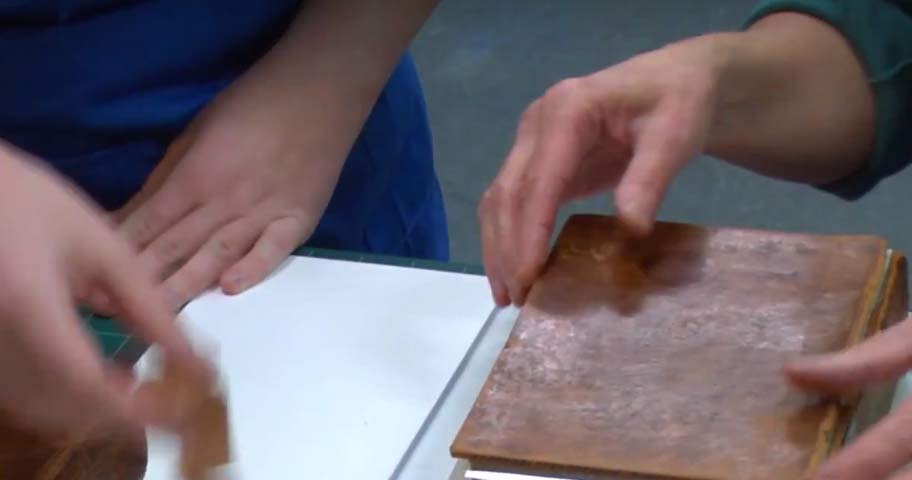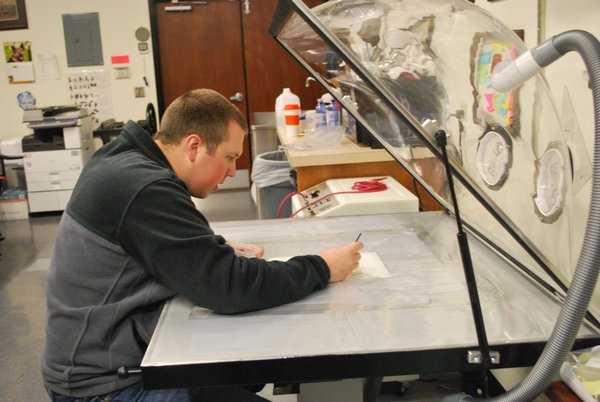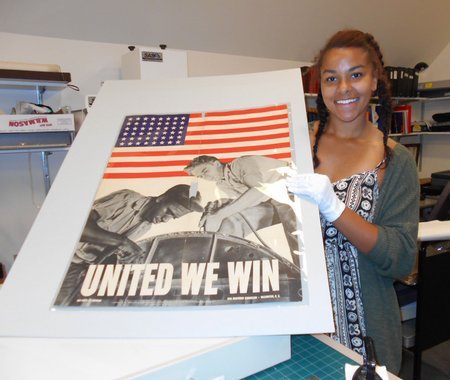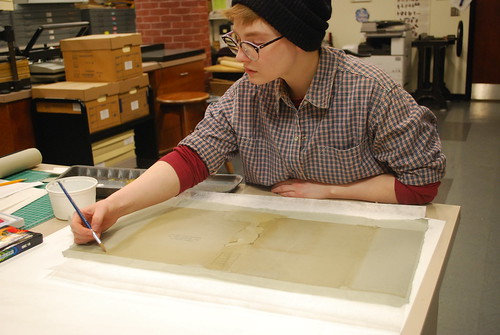Bookbinding and Conservation Lab
The Marion L. Hobor Bookbindery and Paper Conservation laboratory in Special Collections is equipped to provide state of the art care for our paper based collections and give student assistants the opportunity to participate in preservation and conservation activities.

This video showcases the work of Linnea Goebbel, Class of 2013, our first conservation student assistant. Since 2013, over twenty Gettysburg College students have been trained in paper and book conservation by Mary Wootton, our Special Collections Conservator.
Conservation Process
Student employees and interns assist in protective rehousing of collection items, such as encapsulation of posters, maps, or other oversized items, or in constructing custom boxes for fragile items or books. They have the opportunity to perform hands-on treatments, such as humidifying and flattening documents using our suction table, or performing repairs on books with deteriorated or damaged text blocks or bindings. These repairs may involve washing, deacidifying, and/or mending book pages, toning paper or cloth to match original book papers or covers, and resewing text blocks. Our Kensol hot-stamping press provides students with the opportunity to set type and stamp title information on books that required new covers or on labels for rare book boxes. They also work on stacks maintenance projects, such as cleaning books and shelves in our Collections room.
Conservation Projects

Tyler Black, the 2016 Diane Werley Smith intern, is pictured here using the suction table to clean an 18th-century document from the Early American Document Collection. The project expanded into a study of watermarks and U.S. papermakers. Tyler’s blog post Hidden Beneath: Watermarks in the Early American Document Collection illustrates his discovery of watermarks and the layer of history they reveal.

In fall 2016, Lauren Bradford—Student Assistant (Conservation)—worked with Conservator Mary Wootton to humidify, flatten, and encapsulate over 150 World War II posters.
History of the Book and the Book as Artifact
As our book collections are increasingly appreciated as historical artifacts that reflect the esthetics and technology of their time, our students participate in providing descriptive information about our rare books that enhance our catalog records. Students are instructed in recognizing and recording historical or unique features of our books and bindings. By adding this information to the catalog record our faculty and other researchers are able to search books more easily for specific, historical or physical attributes. You can view examples of these books in our Beauty of the Book: Bindings from Special Collections GettDigital Collection.
Conservation and Preservation Funds
These funds support student assistants and interns in conservation, and assist in the purchase of conservation equipment and supplies.
